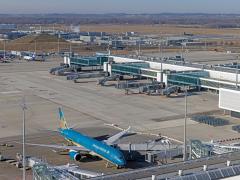Travellers may be turning to AI for travel inspiration to plan and manage their journeys, however travel agents will always remain relevant, according to a recent report by Amadeus.
The report, Connected Journeys: How Technology will Transform Travel in the Next Decade, surveyed 9 500 global travellers from destinations including China, France, India, Singapore, Spain, the UK and the US during 2024, to understand how technology is changing the habits of travellers and travel service providers.
AI for inspiration
The report reveals that YouTube or social media videos are growing more popular as a source of information and inspiration, influencing where clients want to travel.
YouTube and videos came in as the second most influential source of research (26%) among travellers, just behind word-of-mouth (36%) and above Generative AI tools (18%).
Interestingly, YouTube and social media videos saw a year-on-year increase of almost 40%. Generative AI tools are also rapidly growing in popularity, as their influence nearly doubled.
AI for planning
Travellers are increasingly turning to AI to plan and manage their journeys, with Generative AI usage up 64% compared with last year.
Key benefits appreciated by travellers include significant time savings in their travel searches (42%), personalised recommendations (37%) and the discovery of new destinations (36%).
However, the study also revealed that AI was also falling short of travellers’ requirements for travel planning and management. A quarter of respondents found that Generative AI often returned results with outdated or inaccurate information, while another 25% struggled with creating prompts that enabled AI to provide results that aligned with their personal preferences.
Agents always relevant
The report found that the introduction of AI was changing the role of travel consultants in the industry.
“Previously, travel consultants primarily looked at booking the travel and focusing on the itinerary. Now, the role has evolved into managing travel, often as a natural extension of their procurement functions,” said the report.
Human agents were found to be particularly in-demand during travel disruptions.
“While the use of chatbots and AI agents has become standardised in many customer service realms, during disruptions a sizeable number of passengers still prefer to speak to a real human,” the report found.
In an Amadeus survey, the human touch came out top at 29% in terms of what travellers want most to feel reassured during travel disruptions. This percentage did vary slightly depending on the age of the traveller. The older the traveller, the higher the appetite for human interaction.
The report emphasises the value of hybrid approaches that see human agents offering travellers support and reassurance, while using technology such as AI to quickly resolve disruptions.













